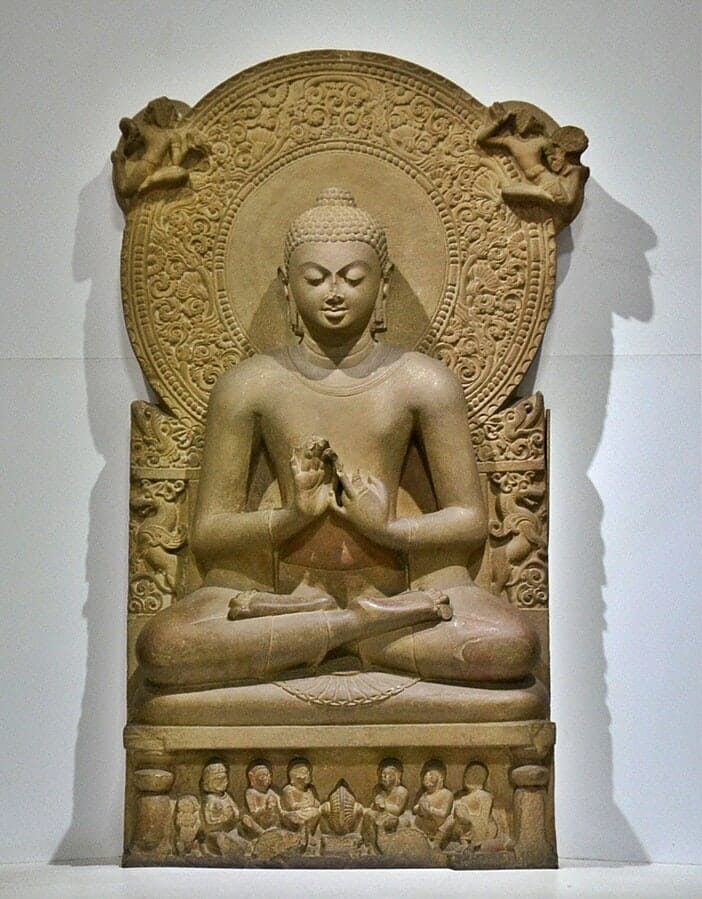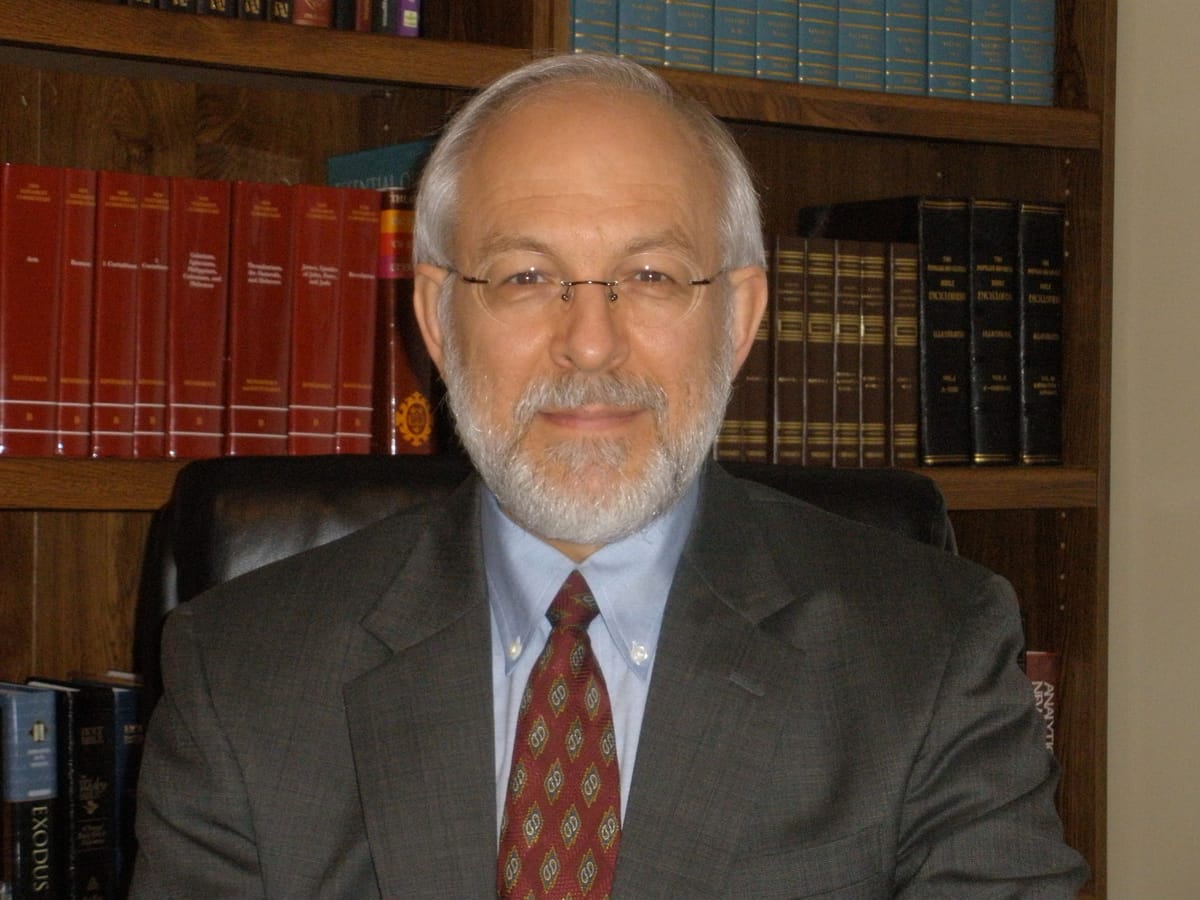Along with our own commentary, the following is a continuation of the work by Isabel Hill Elder.
In this blog, all emphases and comments in [brackets] are mine. Unless within my brackets, all words in (parentheses) are presumably by Ms. Elder.
Additionally, we have spelled out the full names of her biblical references and changed the chapter numbers from Roman numerals to Arabic numerals. We have also shortened many of her lengthy paragraphs to make them more readable for the tiny and narrow screens of some of our modern digital devices.
At this point, Ms. Elder has concluded her extensive quotation from the pseudepigraphal book, The Testaments of the Twelve Patriarchs. She now traces the history of the descendants of Levi from the Exodus from Egypt up to the time of Ezra.
From the foregoing excerpts from the Last Testament of the Patriarch Levi, it is noteworthy that ere Jacob and his household came into Egypt, Levi had been constituted and anointed family priest by his grandfather Isaac, in Hebron, who also decreed that all tithes were henceforth to be paid to Levi.
Until this time the tithes were taken to Melchizedek, King-Priest in Jerusalem; known as Ebed-Tob (servant of God) as discovered on the bricks of an ancient city, Uru Salem—City of Salem. Three times Ebed-Tob says "not my father nor my mother installed me in this place but the Mighty King," i.e. he did not inherit by succession but by the gift and "the arm of the Mighty King." (Companion Bible, p.21).
The office, however, continued to be known as the Melchizedekan Order, now set aside and replaced by the Levitical Order until the great King-High-Priest, Jesus Christ, should come and re-instate in His own Person the Melchizedekan Order.
It is noteworthy that Jacob, upon his first visit to his aged and almost blind father Isaac in Hebron, took with him his sons, Levi and Judah, the future heads of the two most important tribes in Israel. Levi, the priestly tribe, and Judah, the throne, or royal tribe, while the birth-right tribe of Ephraim took precedence in leadership. Joshua led across Jordan because he was of Ephraim.
Jacob or Israel on his dying couch gave each of his sons and their sons his prophetic blessing. Of Levi, the patriarch declared "I will divide them in Jacob and scatter them in Israel," a prophecy which has been dramatically fulfilled.
The separation of Levi and his descendants for service in the things pertaining to God and the respect they received from all the family of Jacob, had the effect of giving them an aura of superiority which increased with the passing of time, and was often the cause of spiritual declension. Levi, their father, with the prophetic eye, foresaw all this and warned against the sin of pride and idolatry.
Levi's wife died, as he tells us, at the birth of his son Merari. Some years later, when he was over sixty years of age Levi married a second time, and by a curious coincidence his daughter by this marriage, Jochebed, was born on the same day as his eldest grandson, Amram, son of Kohath.
In later years Amram married his father's sister, Jochebed. (Exodus 6:20); their three children, Miriam, Aaron and Moses, were the greatest Levites of all time, used of God in the deliverance of His people Israel from the bondage of Egypt. Their father, Amram, according to Josephus was "one of the nobler sort of the Hebrews"; perhaps a superiority born of the consciousness of a great destiny, instilled into his mind by his grandfather Levi.
The Passover, on the eve of the departure of the Israelites from Egypt was instituted by Levites, Moses and Aaron, at God's command, and ordained to be administered by Levites until the coming of the Lamb of God whose sacrifice the feast fore-shadowed.
Once over the Red Sea, and on the Arabian side, the gift of leadership with which Moses, Aaron and Miriam were endowed for the guidance of God's people through the wilderness, manifested itself in outstanding and dramatic situations unprecedented in the annals of history. No longer young, Moses, the youngest of the trio, was 80 years of age; all had that strength of character and physical virility which made them fit instruments under the hand of God for the great task on which they had embarked.
Miriam has become, perhaps, a little overshadowed by her famous brothers, and little is related of the task assigned to her, in the leadership of the women. Miriam was responsible for the welfare of the women and children, numbering many thousands, to whom she must have been an inspiration during those forty years of slow movement towards the land of Canaan. In this journey they made 52 encampments, with much labour involved for the women who were responsible for these temporary homes.
[Perhaps this was a “typo” by Ms. Elder. We believe there were 42 encampments in the wilderness, the 43rd being the crossing of Jordan into the Promised Land under Joshua.]
In the organization of the children of Israel as a nation, the Levites, were set apart for service to the nation in both sacred and secular matters. The High Priesthood was vested in Aaron and his descendants until the coming of the Messiah, when the Levitical priesthood would cease.
Apart from the High Priest the service priests were a distinct class with definite duties and responsibilities. The most accurate definition of a priest is found in Hebrews 5:1. The priest was "appointed for man in things pertaining to God." That is, he presented things, gifts and sacrifices from man to God, and as such his work was the opposite of that of the prophet which was to represent God to man.
From the tribe of Levi were drawn, not only the priests but the physicians, teachers, astronomers, scribes, lawyers, judges and all the professions. The setting up of the Tabernacle under the direction of Moses was wholly the task of the Levites, and here worship was maintained from the wilderness years to the time of Solomon in whose reign the Temple was built in Jerusalem. (Numbers 4:4; 18:6).
The book of Leviticus treats of sacrifice and priesthood, the basis and means of drawing nigh to God. Its counterpart in the New Testament is the Epistle to the Hebrews, the climax to Leviticus, when the priesthood of Levi came to an end and the Melchizedekan Order restored in Christ Jesus, the King-Priest, the Ever- Living High Priest.
To signify their being dedicated to the service of God the Levites were made to walk to and fro before the Tabernacle and thus entered on their work, which, in the wilderness, was to bear the things pertaining to the Tabernacle; and in that and after ages to take care of the Tabernacle, Temple and the furniture thereof, and to assist the priests and to teach the people. The priests alone among the Levites had sacred apparel. (Brown's concordance to the Bible "Levi").
At the end of forty years in the wilderness the Israelites arrived at the banks of the river Jordan, where Joshua, by birthright, took over the leadership from Moses. The great lawgiver could lead the people to the brink of the river, but only one of the birthright tribe of Joseph could lead them across the river to the Promised Land.
This was no hardship to Moses; it was he who had prepared Joshua to succeed him as leader. The God of Israel graciously permitted his servant Moses to view the Promised Land from Mount Nebo, and to see with his own eyes the objective of his years of leadership under colossal difficulties.
Without a murmur the Levites obeyed Joshua, and nobly played their part in bearing the Ark across the Jordan. They also rendered perfect obedience to Joshua in the conquest of Jericho by carrying out his instructions, given by God, for the collapse of its walls.
Upon the death of Joshua many of the Levites fell into the sin of idolatry, and allowed themselves to be led by the people in "seeking after strange gods" — the gods of the heathen Canaanites.
The book of Judges is one long series of defection and punishment, and deliverances from bondage to various neighbouring nations, with intervals of nearly 100 years of rest; the book displays a lamentable weakness on the part of the Levites in their failure to stem the tide of evil.
Lacking their God-appointed guidance "Every man did that which was right in his own eyes." (Judges 17). The outstanding godly characters of this period were not of the tribe of Levi. The beneficent law, however, of leaving the gleanings for the stranger (Leviticus 19:9) was observed in the days of Ruth, "in the time of the Judges." An exception was Samuel the Levite, a direct descendant of Korah. The people begged Samuel to pray for them whereupon a solemn fast was appointed when the people bewailed their sins.
In the personal history of Samuel, the last of the Judges, is recorded the moral failure of the priesthood, followed by a reformation in the days of King David.
With the setting up of the throne of David there came a revival of ordered and true worship of Jehovah through the Levitical priesthood. The scribes of this reign record thirty thousand Levites over the age of thirty, of which twenty-four thousand were to set forward the work of the house of the Lord, and six thousand were officers and judges. Moreover, four thousand were porters "and four thousand praised the Lord with the instruments that I had made," said David, "to praise therewith." (1 Chronicles 23:5, 6).
In the Temple built by Solomon, the Levites remained a strong body and maintained the worship of Jehovah in all its purity. "Out of all the tribes of Israel such as set their hearts to seek the Lord came to Jerusalem to worship." (2 Chronicles 11:16).
The defection of Solomon in turning aside to idolatry was followed by a marked deterioration among both Levites and people, and in the end led to banishment and captivity as a means of reformation and not of extermination.
Many great Levites arose from time to time, fierce in their denunciation of the evils in the Israel nation. Of their number were Elijah, Elisha, Isaiah, Jeremiah and Ezekiel, the two latter of the House of Aaron. Ezekiel, a captive in Babylon, was carried thither with the royal family of Judah by Nebuchadnezzar.
It is well to remember that so outstanding was the work of this great Levite among the captives of Judah, so unsparing in threats of Divine punishment for their idolatry, so faithful in leading them to seek the mercy and forgiveness of the God of Israel, together with his efforts to lift the exiles from the slough of despair into which they had fallen, that when Cyrus, after seventy years, gave these captives liberty to return to Palestine, their homeland, they were no longer an idolatrous people.
These captives of the House of Judah included some of Benjamin and Levi, and were now for the first time collectively called Jews.
The remnant of Judah, about 40,000 only, elected to return under the offer and protection of Cyrus, and with truly reformed hearts re-built the Temple under their great Levite leaders, Ezra and Nehemiah.
The remainder of Judah declined the offer of Cyrus of repatriation, and embraced the opportunity of freedom to trek to the shores of the Caspian Sea, to join their brethren of the Ten Tribes or Northern House of Israel who had escaped from captivity in Assyria during a revolution in that land, and had gradually moved southeast to the shores of the Black Sea and the Caspian Sea; these escaped captives were visited by Buzi, Ezekiel's father, known in history as Buddha who, as missionary reformer, led them to see the sin of idolatry.
[We read a small booklet many years ago making the case for identifying Ezekiel’s father with Buddha. We found it interesting but not convincing. While Buddhism teaches some good moral principles, it is far removed from the basic concepts of Yahweh’s divine law and Christianity.

Buddhism teaches rebirth (but not reincarnation as commonly understood today). However, it teaches a cycle of lives with the concepts of karma and nirvana and … well, it gets quite complex, so we will stop there.]
Upon the completion of the re-built Temple in Jerusalem, Ezra found that by far the greater number of Levites had gone with the contingent of Judah who had elected to join their brethren of the Northern House of Israel, and comparatively few had returned to Palestine.
Ezra, of the House of Aaron, sent special messengers to the locality of the Caspian to the main body of Israel. Ezra records: "And I sent them with commandment unto Iddo, the Chief, at the place Casiphia (Caspian) and told them what they should say unto Iddo and to his brethren at the place Casiphia, that they should bring unto us ministers for the house of our God. And by the good hand of our God upon us they brought us of Levites eighteen, and of Nethinims (servants) two hundred." (Ezra 8:17, 18, 19).
From the time of Ezra to the end of the canon of the Old Testament the House of Levi remained the guide of the religious thought and practice of the Israelites who lived in Palestine, and who now subscribed to the shortened form of the name Judah, namely Jews. (To be continued.)
END



